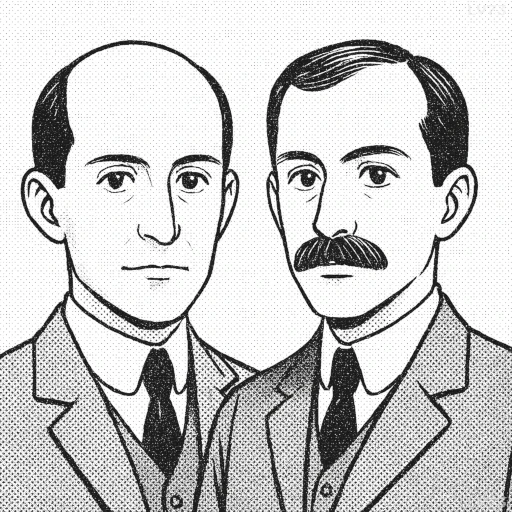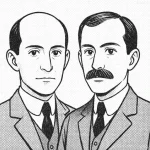“In our gliding experiments we had had a number of experiences in which we had landed upon one wing, but the crushing of the wing had absorbed the shock, so that we were not uneasy about the motor in case of a landing of that kind.”

- Wilbur Wright: April 16, 1867 – May 30, 1912
- Orville Wright: August 19, 1871 – January 30, 1948
- American
- Aviation Pioneers, Inventors, Engineers, First to Achieve Powered, Controlled Flight
table of contents
Quote
“In our gliding experiments we had had a number of experiences in which we had landed upon one wing, but the crushing of the wing had absorbed the shock, so that we were not uneasy about the motor in case of a landing of that kind.”
Explanation
This quote reflects the practical lessons learned through repeated experimentation during the Wright brothers’ early gliding trials. They describe controlled crashes or rough landings where one wing would absorb the impact by crushing, acting almost like a primitive crumple zone. This unintentional yet effective shock absorption gave them confidence in the survivability of their engine in similar scenarios, showing how real-world experience informed their evolving understanding of flight dynamics and structural resilience.
What’s notable is their composure and engineering pragmatism. Rather than viewing such landings as failures, they saw them as valuable data points. Their focus was not only on flying but also on how to survive and protect the machine during imperfect landings—a crucial concern for any aviation pioneer. The quote shows their ability to translate previous experiences into design confidence, particularly in safeguarding the motor, which was both delicate and essential.
In modern contexts, this mindset is foundational to robust design in engineering and safety systems. Whether designing drones, spacecraft, or autonomous vehicles, engineers plan for non-ideal scenarios, learning from near-failures to strengthen future iterations. Orville’s words remind us that resilience often comes not from perfection, but from intelligent compromise—using failure as a cushion rather than a catastrophe.
Would you like to share your impressions or related stories about this quote in the comments section?


